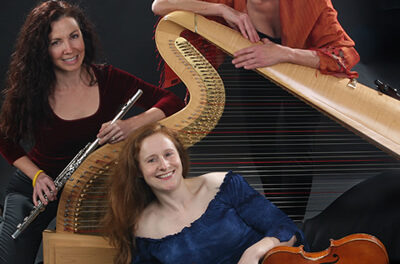I learned minutes just before concert organist Diane Meredith Belcher’s recital got under way that a wind-induced power failure had significantly cut into her program preparation. Her performance Friday night, November 14, at Greensboro’s Christ United Methodist Church was testimony to her high professional skill in light of said predicaments.
Performing on the Fisk pipe organ (Op. 82, 1982) in the church’s sanctuary, Belcher offered a balanced program of recital favorites, rarely-performed masterpieces, and very recently-composed works. Her approach to playing dispensed with subtlety and economy of movement in favor of inspired drama and flair. She put the organ through its paces, making sure to reveal delightful solo stops as well as thoughtfully-chosen combinations and demonstrated sensitivity to the room’s ambient acoustics.
Mendelssohn’s rarely-performed Sonata No. 5 in D Major, Op. 65, began the program with nobility, aided by a perfect legato in the opening Chorale. In the second movement, Andante con moto, Belcher maintained tension and balance in her phrasing. The treacherous third movement fell less naturally under her fingers and feet – as is the case with most organists! – not quite achieving the natural flow that otherwise characterized most of her playing throughout the evening.
Bach’s grand F Minor Prelude and Fugue (S.534) likewise deserves more frequent performances. Belcher achieved a convincing Saxon-esque plenum for the Prelude, which kept the counterpoint transparent. Although in her spoken remarks she planned a French reed ensemble for the Fugue, the sound was neither jeux d’anches or grands jeux registration but a pastiche of sounds which only came into better focus with the addition of tierce (third-sounding) stops.
Sweelinck’s Variations on “Onder een Linden groen” gave Belcher a chance to show off the organ’s consort sonorities – notably the 4-foot flutes – to good effect. She initially captured the pavanne character of the theme with eloquence. The passagework in the later variations was impressive, but I yearned for more allusion to the dance in her tempi and rhythmic treatment.
Another set of variations followed the Sweelinck, this time Lee Hoiby’s Theme and Variations on Thomas Fay’s “Hear our Prayer, O Lord.” Hoiby’s treatment of this very simple melody maintained interest among the five juxtaposing variations, the second of which owed not a little to the music of Marcel Dupré. Belcher’s commanding performance gave this listener a convincing first hearing.
The second half likewise included a recent work by a living composer, also known primarily for his vocal works. Ned Rorem’s Organbook II contains six movements, five of which are relatively short in duration and all of which have religious/liturgical titles. Their expression ranges from the plaintive “Pie Jesu,” which made use of the 2-foot Fifteenth of the Positive, to the very dramatic “Eli, Eli, Lama Sabachthani?” which used the full resources of the organ. The artist gave each movement an authoritative and profound reading.
Belcher unleashed a whirlwind of sonority in the Intermezzo from Charles-Marie Widor’s Sixth Organ Symphony. She used the Fisk’s French reeds to full advantage and demonstrated finesse with the organ’s keyboard action and flexible wind system, much improved once the organ’s wind stabilizer was added.
Two works by early 20th-century composer Jehan Alain closed the program. His popular Litanies had plenty of bravura. I only wished Belcher complemented her bravura with just a touch more urgency, in order to highlight the pleading nature of the work. On the other hand, the Postlude for the Office of Compline was a pinnacle of sorts for this listener. Alain requires the organist to play a free-flowing chant melody and simultaneously maintain a simple rhythmic accompaniment, without intending for the two components to line up. To say that Belcher got it right is an understatement. She brought out this music so effortlessly, that, together with the organ’s more subdued-sounding stops, I could not help but be caught up in the sense of true and abiding sanctuary within Christ’s Church “great space.” Not a soul stirred for a long time after she released the final chord. Brava!
Performances like Belcher’s deserve capacity crowds. A warm word of appreciation to all in attendance and to the organizers of Music for a Great Space for facilitating her recital.











